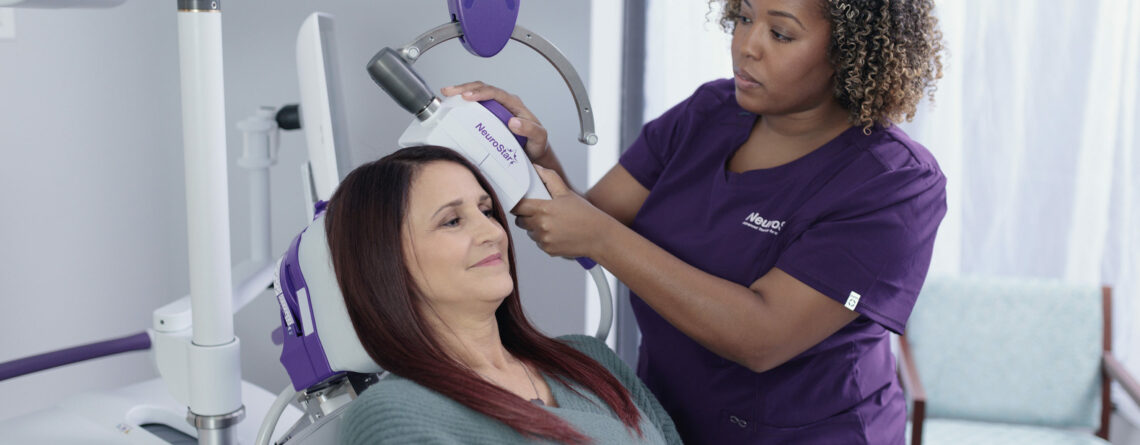What to do if Antidepressants Don’t Work: TMS Therapy
The Nystrom & Associates expert consulted for this article on TMS therapy is Angela Moe, Psychiatric Program Practice Leader.
Depression is one of the most common mental health struggles, and for many people, antidepressants give them much-needed relief. But what do you do if antidepressants don’t work?
If you’ve tried two or more antidepressants and haven’t gotten relief, it can feel like you’re out of options. Sometimes the side effects even make your depression feel worse, making you wonder if you’ll ever feel better. But there’s still hope.
In this post, we’ll discuss TMS Therapy, a non-drug depression treatment that gives many people long-term relief from their depression.
Related: How Therapy Helps With Depression
What is TMS Therapy?
Transcranial magnetic stimulation (TMS) is an FDA-approved safe, non-drug treatment for depression. It uses a mild magnetic field to activate the part of the brain that’s under-stimulated in people with depression, and the results are extraordinary!
The treatment is delivered on a specially designed chair where the patient receives treatment five times a week for 20 minutes at a time. Most of the treatment is complete in eight weeks, and since there are no persistent side effects, a patient can drive themselves to and from appointments.
Related: How to Help a Loved One With Depression
Common Questions about TMS Therapy
If you have questions about TMS therapy, you’re not alone! Many people are a little confused as to what exactly it is, how it works, and how long the effects last for. Let’s answer some of the most common questions here.
Related: So, You’re Starting Therapy: Here’s What to Know
Is it Shock Therapy?
TMS is not ECT (or electroconvulsive “shock” therapy). TMS uses magnetic waves similar in strength to an MRI machine. When you’re doing TMS, you’re fully awake and alert during treatment and after treatment, you can go about your day as normal. ECT, on the other hand, applies direct electrical current through the skull and into the brain rather than magnetic waves and must be done under anesthesia.
Does it Hurt?
The most common side effect is initial discomfort or slight pain from the tapping. Most patients describe it like a mild muscle soreness, and it usually subsides within the first week of treatment.
Do results last?
Yes! In fact, the TMS we do at our organization (NeuroStar) is the only TMS treatment shown to last for a year.
Does Insurance Cover TMS?
Most insurances do cover TMS, especially if you've tried two or more antidepressants that haven't been effective.
Is TMS Right for Me?
If you have depression and have tried two or more medications but still haven't felt relief - or you're not so happy with their side effects - TMS may be right for you.
Reach out if you need help. Right now, we offer NeuroStar TMS in Iowa City and Eden Prairie. Contact us at 1-844-NYSTROM or request an appointment online for more details!





